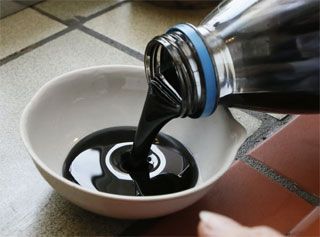 | « Back to article | Print this article |
 Risks of current account deficit, inflation increase
Risks of current account deficit, inflation increase
After being on a downtrend since June 2014, crude oil prices have been on the rise since January 20, 2016.
While Brent has declined from the highs of $115 a barrel to a low of $26.39 a barrel in January, on Tuesday it surged close to $50 a barrel -- an 83 per cent increase from January lows.
The fall in crude prices has accrued immense benefit to India, its industry and its people.
For a country highly dependent on imports for fulfilling its energy requirement, not only has the decline helped government control its current account and fiscal deficits, but also in taming inflation that had been a posing as a serious challenge to the economy.
However, the recent spike has again raised concerns on current account deficit as rising oil prices have the potential to push up inflation besides increasing costs for the Indian industry.
Uday Kotak, vice-chairman and chief executive officer of Kotak Mahindra Bank, had tweeted: “As oil touches $50, India’s honeymoon on inflation, current account may be over. Micro needs to improve faster as macro tailwinds slow down.”
What’s worse, experts feel oil prices will remain volatile with an upward bias.
By the end of 2016, analysts expect natural demand-supply balancing to lead to higher crude prices.
Ambareesh Baliga, an independent market expert, feels crude prices can touch $60 a barrel by year-end.
The comments on rising crude prices come at a time when inflation in already showing up its head.
The wholesale price index returned to positive territory in April 2016 after being in deflation mode for 17 consecutive months.
WPI inflation rose 0.3 per cent year-on-year in April, compared with -0.9 per cent year-on-year in March, way above consensus expectations of -0.23 per cent.
Sonal Varma, chief India economist at Nomura, says, the uptick in April was driven by three factors: Higher food prices, an uptick in global commodity prices and marginally better domestic demand in select segments.
Varma says that any uptick in crude prices will have an impact on current account deficit and inflation though adding that she would not be too concerned till crude crosses $55-60 a barrel levels.
The rising fuel prices can bring stability in global economy and hence, accrue positives too but Varma feels that rising commodity prices, fuel prices, etc can push up costs, while demand is still not too strong.
A rise in demand is what is crucial now.
The last two years of bad monsoon and softer economic growth has been posing challenges on volume growth for consumer companies, automobile makers, etc.
Amarjeet S Maurya at Angel Broking says while in the last few quarters the consumer companies may have seen soft three to four per cent revenue growth, the margin growth has been cushioned by softer input prices and hence bottom line growth has still remained in the range of 9-10 per cent.
The rise in crude prices will push up costs of raw material as palm fatty acid distillates used in soaps and detergents, titanium oxide used for making paints to personal products to food colouring, which are all crude derivatives.
Further, it can prop up packaging and transportation costs too.
Thus, in an environment of soft demand, to what extent costs can be a passed through to customers, remains to be seen.
For now, analysts are optimistic hoping that a good monsoon will push up rural demand and hence are not much concerned about possible rise in costs.
Sujan Hazra, chief economist, Anand Rathi Financial Services, too, remains optimistic on the prospects of good monsoon taming food inflation and supporting demand and hence, says he is not overtly concerned on the medium-term prospects of the Indian economy.
Baliga also believes that if monsoon as expected is good, the demand recovery will support the economic growth.
Nevertheless, the gains from a good monsoon will only come with a lag.
But, if oil prices surge, it will push costs of companies across industries shaving off the benefits seen in recent quarters in the form of high gross margins.